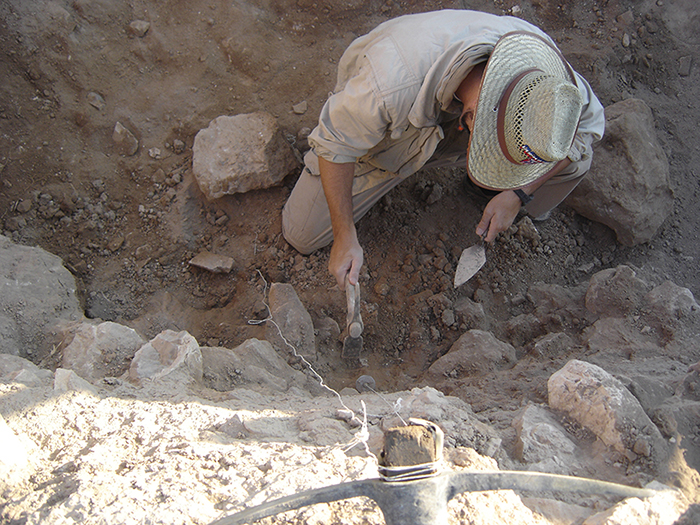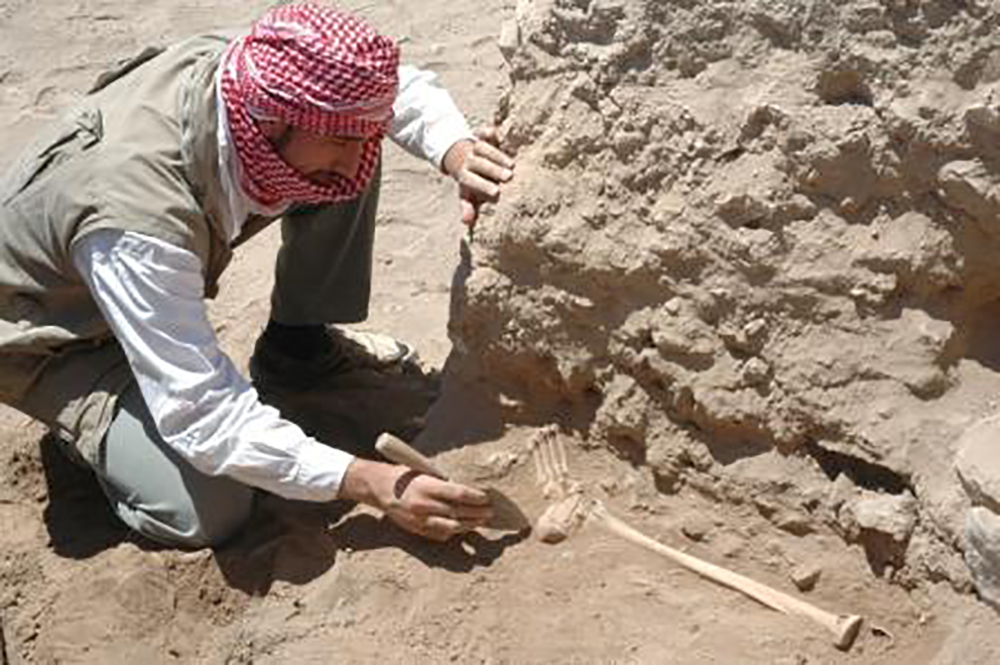Digging for Truth. Is the Bible Just Another Book?
February 22, 2024 | Mayagüez, Puerto Rico | Efraín Velázquez, Inter-American Adventist Theological Seminary (IATS)
In my work as an archaeologist, I am tasked with analyzing the remains of ancient civilizations. This has led me to the dusty roads of biblical lands. I have been able to have a first-hand glimpse of how ancient civilizations left fascinating artifacts that still take our breath away. Still, I must admit that I am as impressed by the art of the sculptors or the ingenuity of the architects, as by the fascinating texts of the past. Inscriptions that we can read on papyri, parchments, tablets, or on massive walls.
In those writings about earlier civilizations, there are recorded accounts of the life experiences of kings, generals, and priests, but also of peasants, potters, and soldiers. When we read them, we are transported with our imagination to discussions of legal disputes, cases heard in court, love letters or anguished requests for help addressed to commanders or kings. With our shovels we have retrieved texts with hymns and poems dedicated to the gods, as well as fascinating explanations about the origins of the universe.
Apart from describing ordinary experiences from those times, many of which are still common today, the Mesopotamian, Egyptian, and Canaanite versions compete in various ways for explaining the purpose of human existence. Each of those cultures has preserved narratives that purport to answer perennial questions about our origins and why humans are in this world. But what is it that makes the Bible, which we still read today, different from those ancient accounts of past cultures? The Bible features most of the literary genres cultivated by ancient civilizations, including narratives, history, poems, hymns, legal, liturgical, apocalyptic, and prophetic literature. But are the Hebrew Scriptures just one more version among all the ones we have from the Ancient Near East?

Dr. Efraín Velázquez during Andrews University Madaba Plains Project, in 2007 at Tall Jalul, Jordan [Photo: Courtesy of Efrain Velazquez]
The Bible as an incomparable book
Many in my discipline argued that Israel was just another people, one among many that existed in the past. According to that explanation, their religious writings were one tradition among many that coexisted in antiquity, one that has been curated by layers of edits and rewritings. The truth is that until 1947, the oldest Hebrew version of the Scriptures dated to about a thousand years after Christ. It was a serious hurdle for those in the modern world who defended the uniqueness of Israel. Archaeology has revealed, however, that the Bible is indeed ancient and has been consistent over millennia. It is a fact that highlights that somehow it must be a unique book.
Scientific research in the Dead Sea area began after looters managed to take hundreds of fragments of the Hebrew Bible from illegal excavations and sell them on the black-market. Some of the scrolls found in Palestine dated to the III century B.C. That discovery shook the academic world and led to rewrite several books on the origin of the Bible.

Dr. Efraín Velázquez, works at a human burial in an Ammonite city in 2000, at Tall Jalul, Jordan during Andrews University Madaba Plains Project. [Photo: Courtesy of Efrain Velázquez]
The Bible and me
I must admit that when reflecting on the accuracy of Scripture, it has not been the archaeological evidence that has impressed me the most. It hasn’t even been its prophecies, although they have impacted me deeply. The effects that reading the Bible has had on my life, has led me to understand that the Bible is not just another book.
As I have dug for truth, I have had the satisfaction of recognizing places, artifacts, buildings, and landscapes that connect me to the biblical accounts. As I studied history, I have been able to see that what the prophets had foretold came to pass. However, becoming aware of the effects of peace, freedom from guilt, transformation, security, and hope, I cannot deny the divine origin of the Bible. I am moved to recognize that “God… at various times and in various ways spoke in time past to the fathers by the prophets” (Hebrews 1:1). The Bible is the Word of God, as He himself has assured. I believe it by faith. “Faith is the substance of things hoped for, the evidence of things not seen” (Hebrews 11:1). It is not blind faith. In Greek, elegxos is used in terms of conviction (evidence). Faith is not achieved with archaeology, because it is a gift from God. How can that faith be nourished? “So then faith comes by hearing, and hearing by the word of God” (Romans 10:17).
Efrain Velázquez is the president of the Inter-American Adventist Theological Seminary with headquarters in Mayagüez, Puerto Rico.